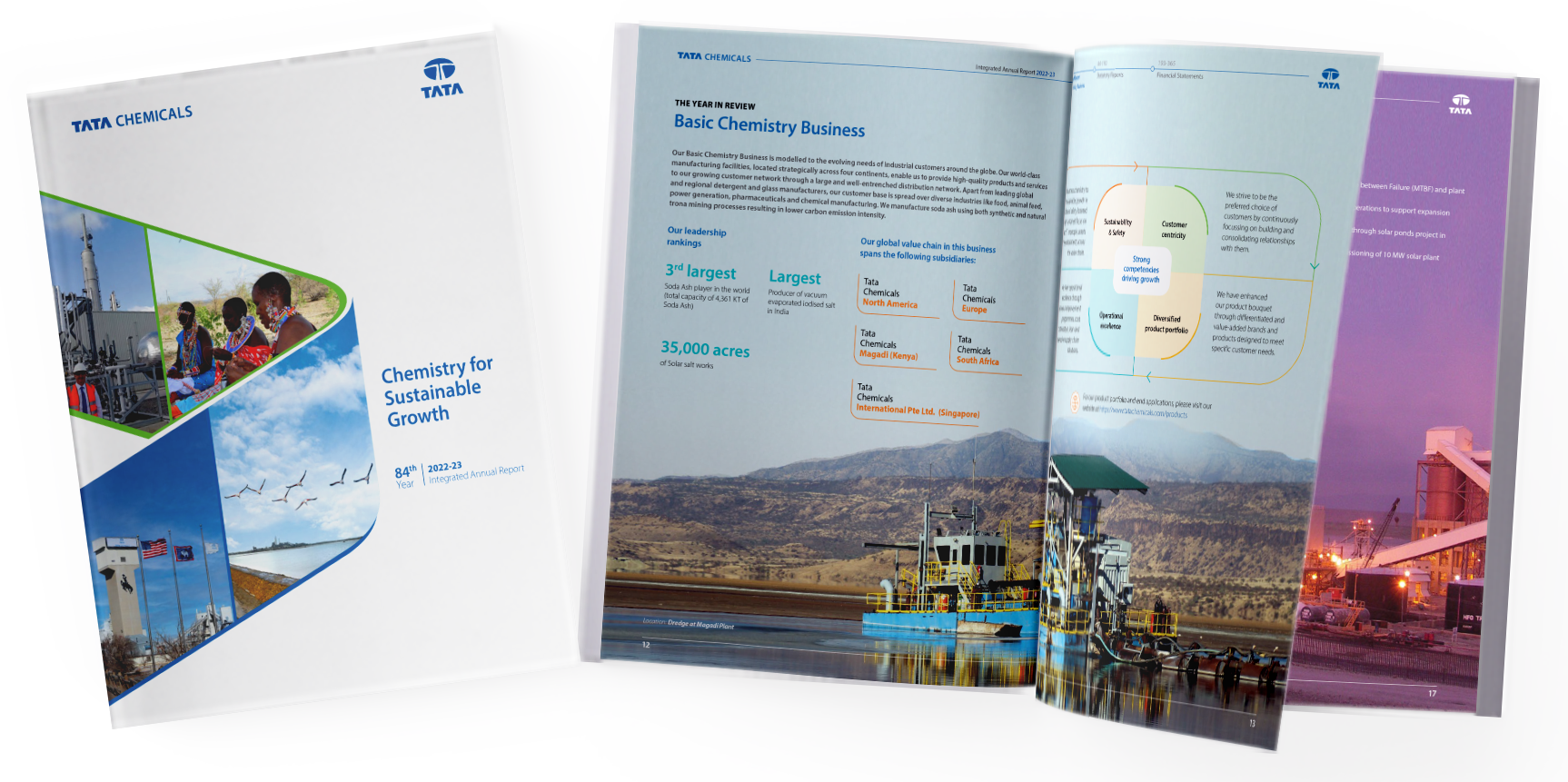Responsible Manufacturing
Responsible and green manufacturing, with focus on resource optimisation, use of alternate resources, and a policy of reduce, reuse and recycle, has helped Tata Chemicals Limited (TCL) achieve core competencies of operational excellence and customer centricity.
Operational excellence and customer centricity have been TCL’s core competencies past many years. Driving our manufacturing processes in a green and responsible manner has helped us achieve these core competencies. The company has identified few focus areas: food and fuel, energy and environment, and water and wellness. The company focuses on effective integration with the basic philosophy of resource optimisation, use of alternative resources, and maximisation of resources through reuse and recycling.
Energy is a significant material aspect for Tata Chemicals. Energy-related goals are decided according to the Balance Score Card and the Responsible Manufacturing Index.
Emissions are a material aspect for the organisation, as they impact climate change and air quality. Emission-related goals are measured against the Balance Score Card and the Green Manufacturing Index.
Water Management Program
Water is a significant natural resource, key to Tata Chemicals operations. All measures to reduce water usage are implemented and water sources are metered and monitored regularly. The organisation has set forth stringent targets’ year-on-year to reduce water consumption and reviews them on a regular basis. TCL, India carried out a detailed water footprint and sustainability assessment as per the Water Footprint Network Netherlands methodology. Direct product water footprints and site water footprints were established for blue, green and grey water.
Advanced treatment systems are in place to ensure discharged water standards is well within the norms. We undertake Regular assessment of water usage to identify areas for improvement and Implementation of water conservation technologies and process optimization. We do not have any water-related incidents in the past 4 years.
TCSRD (Tata Chemicals Society for Rural Development) has been implementing various water conservation projects (rain water harvesting) especially water scarce areas , where non-availability of quality water is a big concern. The company has conducted training and awareness programs among employee and community to Foster a culture of water optimisation and conservation.
Project Aalingana, Tata Group’s sustainability initiative, has set ambitious water targets i.e Replenish the fresh water used across Group operations in India by 2030 and become net water positive by 2040.
Waste Management Program
Tata Chemicals has implemented a robust waste management plan to minimize waste generation, maximize recycling and reuse, and ensure safe disposal to enhance waste performance and promote sustainability. The company ensure on-site segregation of waste for responsible waste management practices which involves 100 per cent recycling of plastic waste, reutilization of fly ash and safe disposal of waste across the locations.
Regular waste audits and trainings are conducted to pinpoint areas with high waste generation and identify opportunities for reduction. Various strategies have been deployed post audits to reduce environmental impact and conserving resources such as opting for bulk transportation to reduce plastic packaging, reusing hazardous waste within operations, utilizing solid waste as a raw material in processes, continuously improving production processes to reduce waste generation, and utilizing plastic waste as a energy source in cement manufacturing.
Tata Group’s flagship initiative, Project Aalingana, is focused on minimizing waste generation and maximizing recycling and reuse. The company aims to divert all waste from landfills by 2030.




